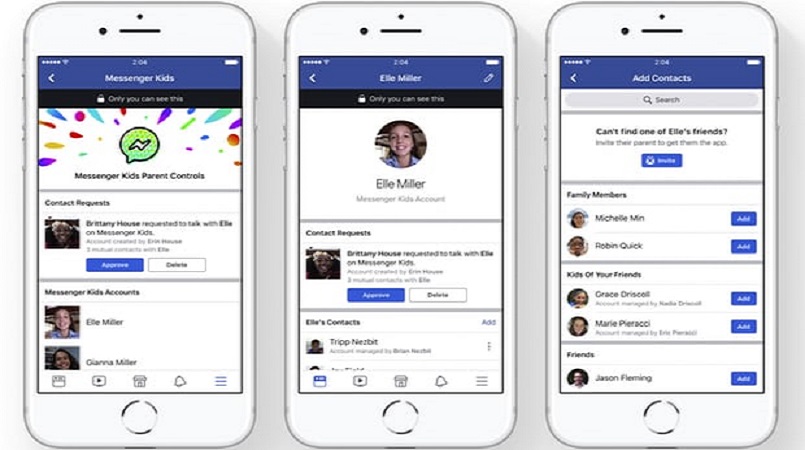
Facebook launched a new service for children at the same time that a moral panic was sweeping the UK about the dangers of children using live-streaming apps that enable anyone to broadcast video directly from a smartphone or a tablet.
The BBC showed a scary example of what can happen. A young woman who works as an internet safety campaigner posed as a 14-year-old girl to find out what occurs when a young female goes online using one of these streaming services.
You can imagine what happened and if you can’t, go to the BBC site and search for “posing as a schoolgirl to expose online groomers”. No one who understands the internet would be surprised, given that the network holds up a mirror to human nature and much that is reflected in it is very dark. Another report claimed that children as young as nine who use the Periscope app are being groomed in this way, getting messages such as “show skirt under desk” (to cite one of the less explicit requests). Needless to say, Twitter (which owns Periscope) says that it has “zero tolerance” on this kind of thing. Which doesn’t quite answer the obvious question: what steps are you taking to ensure that children can’t use this app?
Meanwhile, on the other side of the pond, Facebook rolled out its exciting new service for younger children and their peers. It’s called Messenger Kids – “a new app for families to connect” – and it allows under-13s to chat with other people of whom their parents approve. “After talking to thousands of parents, associations like National PTA and parenting experts in the US,” burbled Loren Cheng, Facebook’s product management director, “we found that there’s a need for a messaging app that lets kids connect with people they love but also has the level of control parents want.”
An astonishing 93% of six- to 12-year-olds in the US have access to tablets or smartphones, while 66% have their own device and three out of every five parents surveyed said their kids under 13 used messaging apps, social media or both. But – pace the current moral panic in the UK – these apps weren’t built for children’s privacy and, instead, allow adult strangers to contact or follow children.
So the new app puts parents in control. They download the app on to their child’s phone or tablet, create a profile for them and approve friends and family with whom they can text and have video chats from the main Facebook Messenger app. There are safety filters to prevent children from sharing nudity, sexual content or violence. Parents fully control the contact list and children can’t connect with contacts of whom their parent do not approve. Parents also control the child’s account and contacts through a special panel that appears in their main Facebook app. The app is free to download and there are no ads or in-app purchases on it.
Messenger Kids exudes wholesomeness and good intentions, just as Google did at the beginning, and as Mark Zuckerberg still does in his pious epistles to his disciples. But before we get carried away, let us put this exciting new development in its wider context. Facebook is a data-mining and refining company. It makes almost all of its revenues from monetising the data trails of its users. The key to its continuing prosperity lies in making sure that the supply of that precious data continues to flow in ever-increasing volumes.
That can only be done in two ways: by increasing the number of users and/or by increasing the amount of time they spend engaging with the service – ie creating “monetisable” data. At present, children under the age of 13 are not supposed to have Facebook accounts (though it seems that some manage to get around that obstacle). Accordingly, there are a significant number of young “data sources” out there who are currently a dead loss from the data-mining point of view.
But what’s really alarming – from that perspective – is that when these youngsters get to be 13 there might be other online temptations available that are more attractive than the Facebook of which their parents, grandparents and even great-grandparents have become avid users.
So why not find a way to get them into the Facebook habit early in life, so that when they become teenagers all they have to do is to upgrade to an adult account? It’s a no-brainer, really. Think of Messenger Kids as the gateway drug that gets these potentially lucrative data sources hooked. In a way, Zuckerberg & Co are just taking a leaf from the Jesuits’ playbook. “Give me a child for his first seven years,” their founder, St Ignatius of Loyola, is reputed to have said, “and I will give you the man.”
